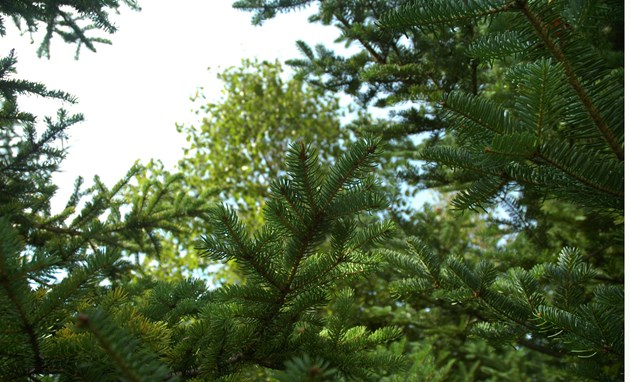In August of 2016, the province of Nova Scotia approved the applications of Northern Pulp, and five other companies, to spray more than 2,600 hectares of woodland with VisionMax, a herbicide containing the active ingredient glyphosate. The spraying was intended to choke out hardwoods and provide for the unimpeded growth of coniferous trees.
From the article:
“’These applications came into our department and we’ve reviewed all the pertinent material and have taken submissions from people that are concerned about the spray and looked into everything,’ Environment Minister Margaret Miller said of the company’s plan for an aerial and ground spray of 27 woodland sites with VisionMax, which contains the compound glyphosate as its active herbicidal ingredient.
‘We know that it (glyphosate) has been approved by Health Canada,’ Miller said after giving her ministerial approval Wednesday. ‘Terms and conditions were set with the approvals and we are quite secure that it is not going to be an issue.’”
However, it was an issue that MANY were both concerned AND upset about. So much so, that resident Lenore Zann gathered more than 2,000 signatures on an online petition against spraying, “The McNeil government is making a big mistake in allowing this to go forward when in 2015 it was deemed by the World Health Organization that glyphosate is a probable human carcinogen. There is going to be more and more information coming out about it. There are class-action suits taking place all around the world right now, where communities are unhappy with governments that are not looking after the best interests of their health. Maybe it’s time for the people here to take things into their own hands and rise up and say enough is enough.”
RELATED ARTICLES:
EPA Poised to Sign Off on Monsanto’s Glyphosate, Despite Warnings by Independent Scientists
Unsealed Court Docs: Monsanto Colluded With EPA, Was Unable To Prove Roundup Does Not Cause Cancer
The spray program sought to cull hardwood from woodland stands to allow the unimpeded growth of coniferous softwood that the Pictou County mill uses to produce kraft pulp. But it doesn’t just do that, it poisons the air, land, and drinking water as well. Speaking about their motivation, Zann said it brought an old native American saying to mind, “When the last tree has been cut down, the last fish caught, the last river poisoned, only then will we realize that one cannot eat money.”
And Zann isn’t alone. Matt Miller, the forestry co-ordinator for the Ecology Action Centre, also takes issue with the spray program, but for different reasons.
From the article:
“There are definitely reasons to be concerned about the health impacts and the public deals with the risks and the company gets the benefits,” he said. “But for me, this is a symptom of Northern Pulp’s approach to forest management, which is clearcut, plant and spray. This approach to forestry is not supported by the public. It’s seen as too far weighted in terms of a fibre approach instead of other ecosystem values, forest diversity and forest resilience.”
And, according to Miller, eliminating hardwood with herbicide treatments is unnatural and has economic impacts; their native Acadian forest is one of the most diverse forest regions in Canada and would naturally be very resistant to disease because of its diversity. But not only that, some of the hardwood competition they are trying to wipe out is projected to fare better with the changing climate. Further, some of the species that they are trying to promote don’t have a good future in terms of climate change.
Perhaps it’s time to evolve aspects of forest management. Or don’t and just poison it to death. That seems to be the way of the world.
Source: Local Express












